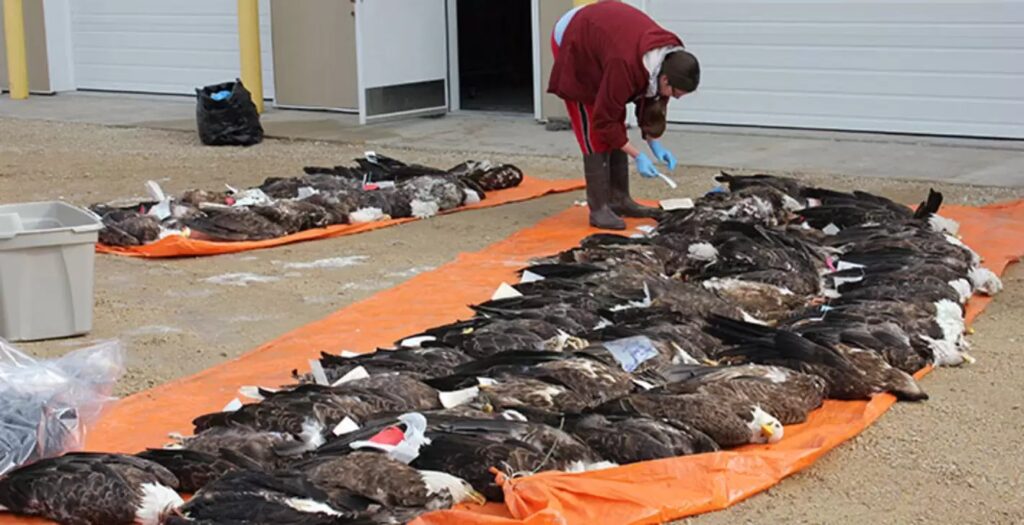
She was so beautiful and so beloved.
A beautiful golden eagle residing in Yellowstone National Park saw his life brutally cut short — and it might have easily been avoided.
The 5-year-old eagle was discovered dead in December, but the cause of death was just recently discovered: lead poisoning.
The golden eagle was well-known among bird enthusiasts because she was the first in the park to wear a monitoring device, which allowed visitors to learn more about the life and habits of this majestic species in and around renowned Yellowstone.
“The marked raptor was part of a research to understand Yellowstone’s production, migrations, survival, and cause of death,” Yellowstone National Park said in a statement about her demise. “Transmitter data indicated that the eagle travelled significantly north of the park during the 2018 autumn hunting season before [she] perished.”

Because hunters around the park continue to use lead bullets despite the availability of alternatives, this eagle died needlessly, as have many others. Eagles occasionally dine on the carcasses of animals such as deer, and when lead bullets are found in the bodies of these animals, death breeds death.
“Lead damages the nerves, which includes your brain, muscular function, and all other aspects of your body. The birds are frequently unable to stand… They generally have trouble breathing. They are unable to even open their beaks “Lynn Tompkins, executive director of the Blue Mountain Wildlife Rehabilitation and Education Center in Oregon, recently told The Dodo that she has been attempting to rehabilitate birds from lead poisoning for over 30 years. “The main source is lead ammunition.”
Unfortunately, this golden eagle’s case was no different.
Yellowstone said, “Levels discovered in the golden eagle were exceedingly high and considerably above fatal toxicity.” “Golden eagles and other bird scavengers rely heavily on hunter-provided carrion, particularly gut heaps.”
Lead poisoning may kill a wide range of animals, and even low amounts of lead can cause animals to become sluggish and confused, making them more prone to deadly accidents.
A nationwide prohibition on the use of lead ammunition in national wildlife refuges was overturned in 2017, however some local governments are attempting to implement limits in order to reduce the number of unnecessary fatalities. However, if hunters deliberately switched to different types of ammunition, more lives may be spared.

Leave a Reply